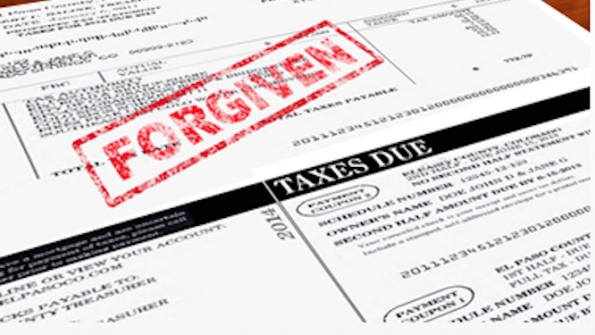New standard will require cities and counties to report corporate tax breaks
Cities and states for the first time will be required to disclose tax abatement agreements, which will reveal the loss of revenue from corporate tax breaks for economic development projects, according to a new Governmental Accounting Standards Board (GASB) rule.
GASB, earlier this month, issued final guidance on disclosure requirements in GASB Statement No. 77, Tax Abatement Disclosures, which are designed to provide financial statement users with essential information about the agreements and the effect they have on a government’s finances, according to a GASB press release.
Oftentimes, governments agree to abate or reduce taxes for individuals and corporations to promote redevelopment of blighted areas, job growth and overall economic development in those jurisdictions. The impact of these abatements can be substantial on governments’ overall financial health, so the new requirement seeks to shed more light on those financial decisions, David A. Vaudt, GASB chair, said in a written statement.
“This new guidance will result in people who use governmental financial statements having access to essential information about the tax abatements governments enter into,” Vaudt said. “Not only will this mean that they’ll have access to information that will allow them to better assess a government’s financial health, but it will also make the impact of these agreements much more apparent.”
The disclosure standard will also apply to governments entering into abatements on behalf of other governments, i.e. county government on behalf of school systems. Disclosing these abatements will require much more communication between government entities, according to a GASB spokesperson.
“Mayors and city officials should open up lines of communication with the departments in their governments that maintain information about tax abatements," said the GASB spokesperson. "If their tax revenues are reduced by tax abatements entered into by other governments, they will need to open up lines of communication with those governments as well.”
Greg LeRoy, executive director of Good Jobs First, lauded GASB’s decision. His organization and website encompasses the Subsidy Tracker, a national database for state, local and federal subsidy awards.
“States and cities spend an estimated $70 billion a year for economic development, most of it through tax expenditures. But we could only estimate because GASB has never before called for standardized reporting,” Leroy explained in a written statement. “That’s the historic value of this new standard: taxpayers and policymakers will finally see the true price tag for economic development.”
Given that states have historically disclosed this data, LeRoy said, the rule will primarily impact counties and cities.
LeRoy noted that some of the shortcomings of the rule include: no requirement for company-specific recipient disclosure and no disclosure of how many tax-break agreements are behind the aggregate program cost figures
The new standard will be implemented for budgets beginning Dec. 15, and the new data will appear in 2017.
Statement 77 requires governments to disclose information about their own tax abatements separately from information about tax abatements that are entered into by other governments and reduce the reporting government’s tax revenues. The new disclosures about a government’s own tax abatement agreements include:
• The purpose of the tax abatement program
• The tax being abated
• Dollar amount of taxes abated
• Provisions for recapturing abated taxes
• The types of commitments made by tax abatement recipients
• Other commitments made by a government in tax abatement agreements, such as to build infrastructure assets.
The new disclosures about tax abatements that are entered into by other governments and reduce the reporting government’s tax revenues include:
• The name of the government entering into the abatement agreement
• The tax being abated
• Dollar amount of the reporting government’s taxes abated.
The full text of the statement is available on the GASB website.
_____________
To get connected and stay up-to-date with similar content from American City & County:
Like us on Facebook
Follow us on Twitter
Watch us on Youtube




















